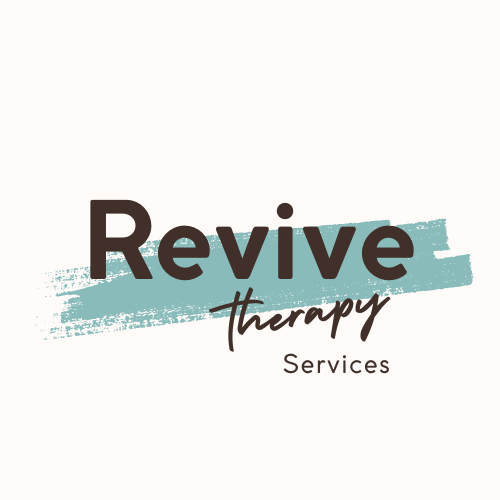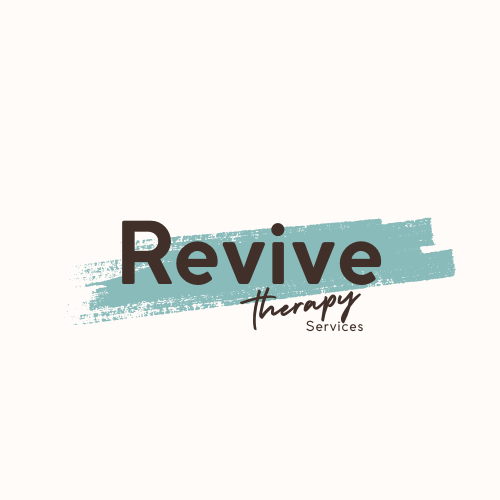Empowering Resilience: Strategies for Coping and Thriving after Medical Trauma
Dealing with medical trauma can be an incredibly challenging and life-altering experience that affects individuals on multiple levels—physically, emotionally, and psychologically. The impact of medical trauma can be overwhelming, leaving individuals feeling a range of emotions, such as fear, anxiety, grief, and uncertainty. It can disrupt one's sense of identity, body image, and overall well-being. At Revive Therapy in Philadelphia, PA, we understand, as Trauma-Informed Therapists, the profound effects of medical trauma and the importance of providing support and guidance to individuals navigating this difficult journey.
The Power of Resilience
We believe in the power of resilience and the capacity for individuals to not only survive but also thrive in the aftermath of medical trauma. Coping with and recovering from medical trauma requires a comprehensive and multifaceted approach that addresses both the physical and emotional aspects of healing. In this blog post, we will explore strategies and interventions aimed at empowering resilience and supporting individuals in navigating their healing journey with strength and positivity.
Experience Working With Individuals Who Have Suffered Medical Trauma
Our therapists at Revive Therapy are experienced in working with individuals who have experienced medical trauma, and they provide a safe and empathetic space where individuals can process their emotions, explore their fears and anxieties, and develop coping mechanisms to navigate the challenges they face. Through evidence-based approaches such as cognitive-behavioral therapy (CBT), trauma-focused therapy, mindfulness-based techniques, and expressive arts therapy, our therapists help individuals gain a deeper understanding of their experiences and develop effective strategies for managing distress and promoting healing.
Strategies for Healing From Medical Trauma
Acknowledge and Validate Your Emotions:
The first step in coping with medical trauma is to acknowledge and validate your emotions. It's normal to feel a range of emotions, including fear, anger, sadness, or frustration. Give yourself permission to experience these feelings without judgment. Remember, your emotions are valid, and it's important to allow yourself the space to process them.
Seek Support:
Building a support network is crucial when coping with medical trauma. Surround yourself with loved ones who are understanding and supportive. Share your experiences, concerns, and triumphs with them. Additionally, consider joining support groups or seeking professional therapy. Connecting with others who have gone through similar experiences can provide validation, empathy, and a sense of community.
Practice Self-Compassion:
It's essential to be kind and compassionate to yourself during the healing process. Understand that it's okay to have bad days and setbacks. Treat yourself with the same kindness and compassion you would offer a friend going through a similar situation. Practice self-care activities that bring you joy and prioritize your well-being.
Focus on Small Victories:
Acknowledge and celebrate small victories along the way. Healing and recovery after medical trauma can be a slow and gradual process. By celebrating even the smallest achievements, you can boost your confidence and motivation. It could be something as simple as taking a walk, completing a task, or having a good day. Each step forward is worth celebrating.
Set Realistic Goals:
Setting realistic goals is crucial in maintaining a positive outlook and preventing feelings of overwhelm. Break down your larger goals into smaller, manageable steps. This approach allows you to focus on one step at a time and gives you a sense of accomplishment as you make progress. Celebrate each milestone reached, and remember that healing is a journey, not a race.
Practice Mindfulness and Stress-Reduction Techniques:
Engaging in mindfulness and stress-reduction techniques can significantly impact your well-being and resilience. Mindfulness helps you stay present and grounded, reducing anxiety about the past or future. Deep breathing exercises, meditation, and visualization can help calm your mind and promote relaxation. Find techniques that resonate with you and incorporate them into your daily routine. Take a walk in a local park or visit a local business that supports the journey.
Embrace Healthy Coping Mechanisms:
Instead of resorting to unhealthy coping mechanisms such as substance abuse or avoidance, focus on healthy alternatives. Engage in activities that bring you joy, such as hobbies, exercise, or spending time in nature. Journaling, painting, or listening to music can also serve as healthy outlets for expressing your emotions.
Challenge Negative Thoughts:
Medical trauma can lead to negative thinking patterns and self-doubt. Learn to identify and challenge these negative thoughts. Replace them with positive and realistic affirmations. Remind yourself of your strength and resilience, and focus on the progress you have made. Surround yourself with positive influences and uplifting messages.
Practice Gratitude:
Cultivating a sense of gratitude can bring positivity and resilience into your life. Each day, take a moment to reflect on the things you are grateful for, no matter how small. This practice shifts your focus from the challenges to the positive aspects of your life, promoting a more optimistic outlook.
Embrace a New Perspective:
Medical trauma can be a catalyst for personal growth and transformation. Embrace the opportunity to develop a new perspective on life. Focus on the lessons learned, the resilience gained, and the personal strengths that have emerged from your experience. Allow yourself to evolve and thrive, using your journey as a source of inspiration and motivation.
Are You Ready to Start Thriving in Life Again? Get the Support You Need with Therapy for Medical Trauma in Philadelphia, PA.
Coping and thriving after medical trauma is possible through resilience and self-empowerment. By acknowledging your emotions, seeking support, practicing self-compassion, and embracing healthy coping mechanisms, you can navigate the healing journey with strength and positivity. At Revive Therapy in Philadelphia, our therapists are here to support and empower you on your path to resilience. Remember, you are not defined by your medical trauma but by your ability to rise above it and thrive.
Follow the steps below to get started on your own healing path.
Read Our FAQ to answer any questions you may have.
Reach out via our convenient online contact form
Begin your journey to healing
Other Services at Revive Therapy
Getting therapy support is perfectly OK! You deserve a space to talk through life events that may be holding you back. Whether this is your first time in therapy or you’ve been here before, I am here to help you process, work through, and move toward your goals in a healthy and sustainable way. If you’re looking for other services at Revive Therapy in Pennsylvania, I offer other services. This includes Eating disorder treatment, body image issues, binge eating, and more. I offer support with EMDR therapy if you’re in need of more specialized support. Additionally, all services are offered via online therapy in Pennsylvania. When you’re ready for support. Call now!


